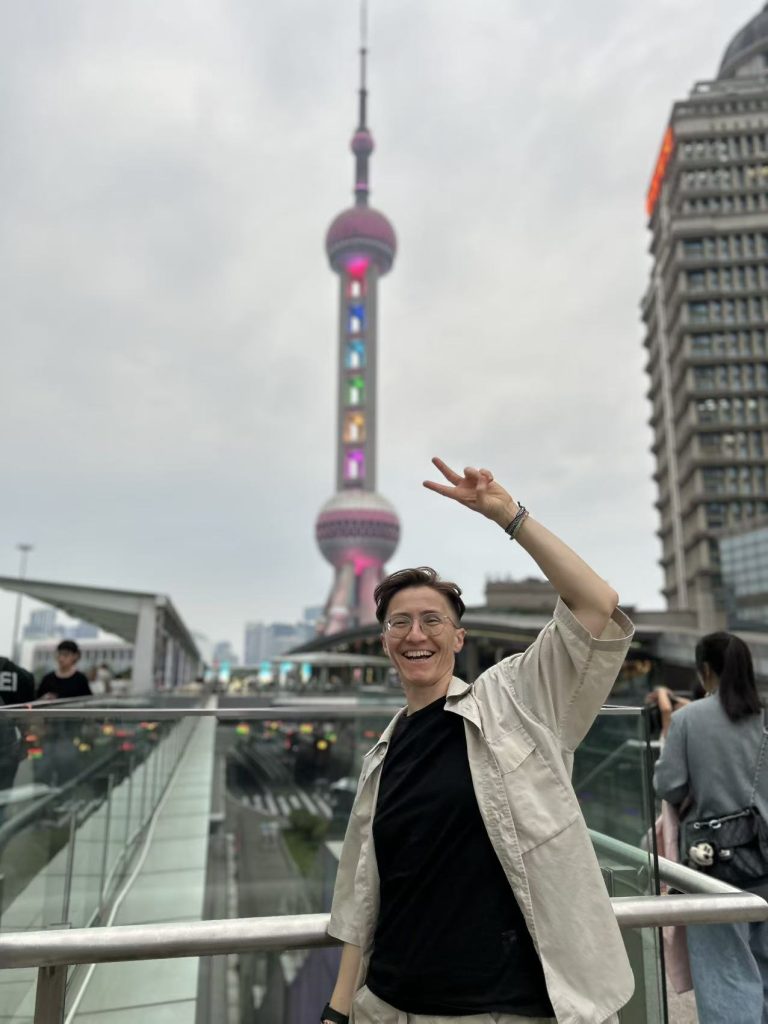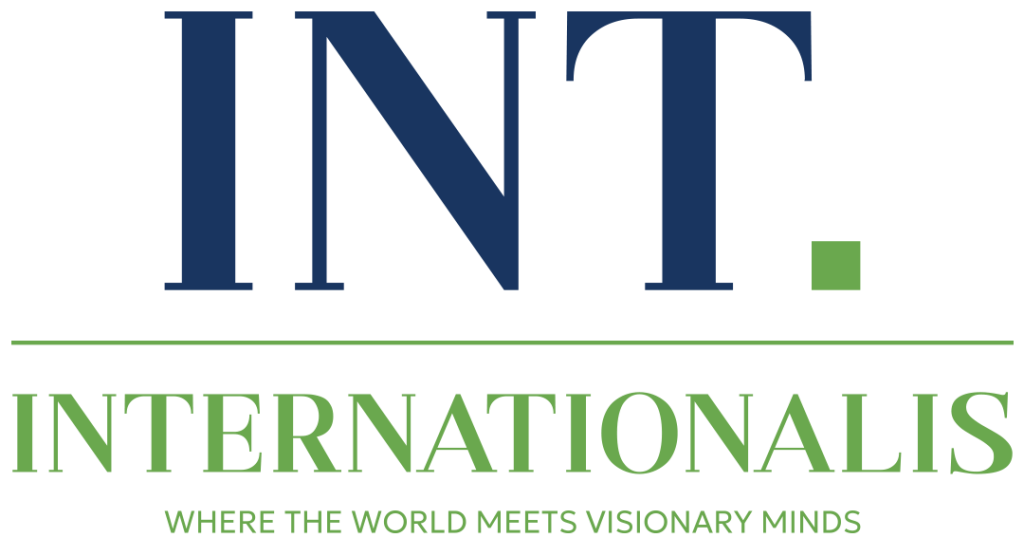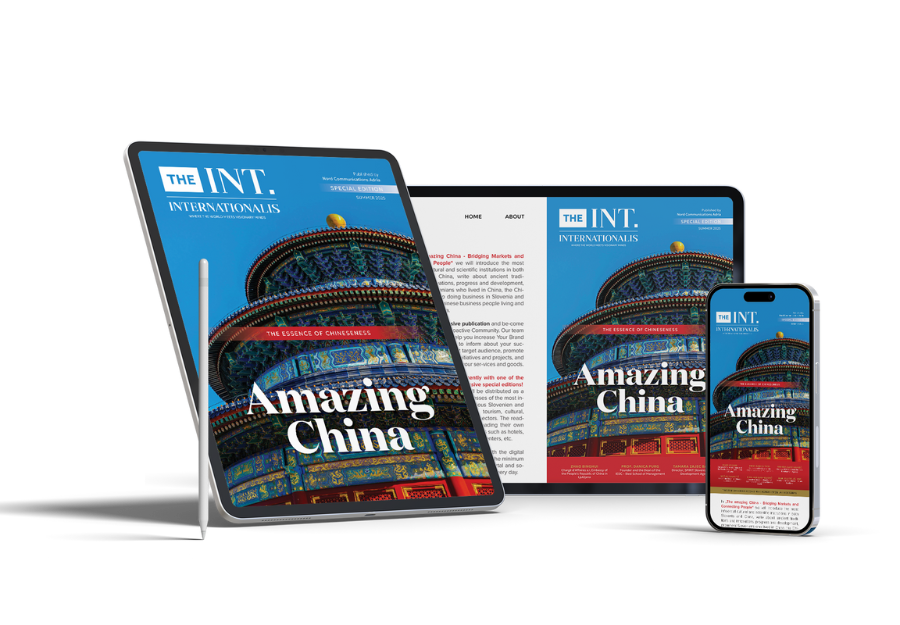Peoples & Places | China - People Exchange

Why Chinese Cameras Don’t Bother Me?
Mojca Pišek
Journalist and Writer
Mojca Pišek
Journalist and a Published Writer
Mojca Pišek - Mika is a journalist and a published writer. Her book of literary essays Knjiga, ki smo jo vendar vsi prebrali (The Book We Of Course All Read, 2019) has been nominated for The Rožanc Award for the best book of essays in Slovene. She worked for Dnevnik newspaper for a decade (2007-2017) and has been a regular columnist and contributor for Delo newspaper since 2019. She has been traveling part-time and working remotely since 2018 and developed interest in foreign politics, geopolitics and topics of Global South / Global majority. Result of that is her second book of essays Globalni južnjaki (Global Southerners, 2024), where she blends genres of travelogue, geopolitical analysis and postcolonial theory. Her work and travels have taken her from Europe to Latin America and eventually to China.

China constantly surprises you, but nothing surprised me more than my reaction to the sensitive question of how I feel about being watched by one, two, or three cameras on every street corner, in restaurants, and in offices.
After months of moving freely through the streets of Beijing, Shanghai, Hangzhou, Qingdao, and other large cities, I have to admit that cameras not only don’t bother me — they actually give me something unexpected, increasingly rare and fragile – a sense of safety, and with it a sense of freedom. I admit this somewhat reluctantly since I believe that the right to privacy is a basic human right.
 At the same time, I ask myself, are cities truly ours if we can’t walk the streets freely at night? And is a state truly functioning, is it meeting even the minimum of its governance, if it can’t ensure public safety as one of the fundamental human rights it claims to protect?
At the same time, I ask myself, are cities truly ours if we can’t walk the streets freely at night? And is a state truly functioning, is it meeting even the minimum of its governance, if it can’t ensure public safety as one of the fundamental human rights it claims to protect?
“One of the dumbest ideas Westerners have about China is that the government cares about what individual citizens do or where they go. What would they even do with the information about where someone ate lunch or who they had a beer with in the evening?” That’s how an average Chinese citizen sees this issue.
They also know well that many Westerners think Chinese people are deprived of the opportunity due to the ubiquitous video surveillance of public spaces to secretly plot a revolution and overthrow the Communist Party, or replace it with something else. But very few Chinese people seriously dream of having multiple political parties, democratic elections, or risking their well-being for the illusion of political participation, which often brings nothing but endless instability. China views the West with the same critical eye and scepticism that the West directs at China.
I regularly cycle through Beijing at night. Sometimes it’s for reporting, other times to cool down after a hot day, and sometimes simply because I can. That freedom doesn’t exist everywhere: for well-known reasons, cities in North and South America don’t offer this, and even in Slovenia, the sense of safety on the streets — once strong — is fading. I grew up in a time when we didn’t lock the doors of houses in the countryside. Now, it’s worth asking why more and more Slovenians, both in cities and rural areas, are installing fences and surveillance cameras. Just like corporations do, supposedly to protect private property — but in doing so, they also monitor public space and people like you and me, who walk the streets anonymously.

In China, both personal and public safety — including the feeling of being safe — are treated as human rights. The state supports these rights with advanced technology. In the West, where political liberalization and pluralism have progressed over decades, states are increasingly unable to do the same. Even in once famously “safe” Slovenia, walking the streets after sunset now carries more risk, stress, invisible emotional labour, and changes to personal habits. Women and members of minority groups feel this more than men. Western ideology often dismisses the safety felt by Chinese people of all classes and genders with the argument: “Of course they feel safe — they live in a high-tech authoritarian regime.” This argument usually comes from men who speak from the privilege of rarely feeling unsafe and who often live in houses or gated communities protected by camera systems.
In dysfunctional societies where the state no longer holds power and capital does, safety becomes an individual responsibility — one that not all social classes can afford.
In China, the state still does its job when it comes to ensuring personal and public safety. It acts as a system that supports fundamental human rights. Chinese citizens see CCTV cameras as a good example of using advanced technology for public and individual benefit. Their higher trust in technology doesn’t mean they don’t question or debate how to use it in ways that actually improve the quality of life. But, they are willing to give up part of their privacy in exchange for public order and safety — not just for the rich, but for everyone. This mindset is hard to translate to the Western mentality, which values individualism and lacks real experience with collective responsibility. Chinese people believe in the Confucian ideal of social harmony, which includes the idea that individuals should give up some rights for the good of the whole.
One growing problem in the West is that our personal data and privacy are managed by Western, mostly American, corporations. Just recently, Delo published a piece about the cyber threats we live with — again stressing that online safety is our personal responsibility. China’s “great firewall” doesn’t exist because the government fears its people. It exists because the Western internet is full of security risks, misinformation, vulgarity, fake news, and ideological propaganda. China has valid reasons not to trust American tech companies, which have already influenced “democratic processes” in other countries through information engineering.
The Chinese experience raises a key question: who would you rather trust to manage your communications, privacy, and personal data — a state that is accountable to the people, or corporations that are accountable to neither the people nor any state?
Source: Delo
Date of first publication: 6th of June 2025. Publisher: Delo d. o. o.
The whole text read here.
Translated by: Internationalis.


Get news before anyone else!
This audio recording was generated using AI technology. While every effort has been made to ensure clarity and accuracy, please note that the pronunciation of non-English words—particularly Chinese—may not always be correct. We appreciate your understanding and acknowledge that any mispronunciations are unintentional. Internationalis Media is not responsible for potential inaccuracies in AI-generated speech.